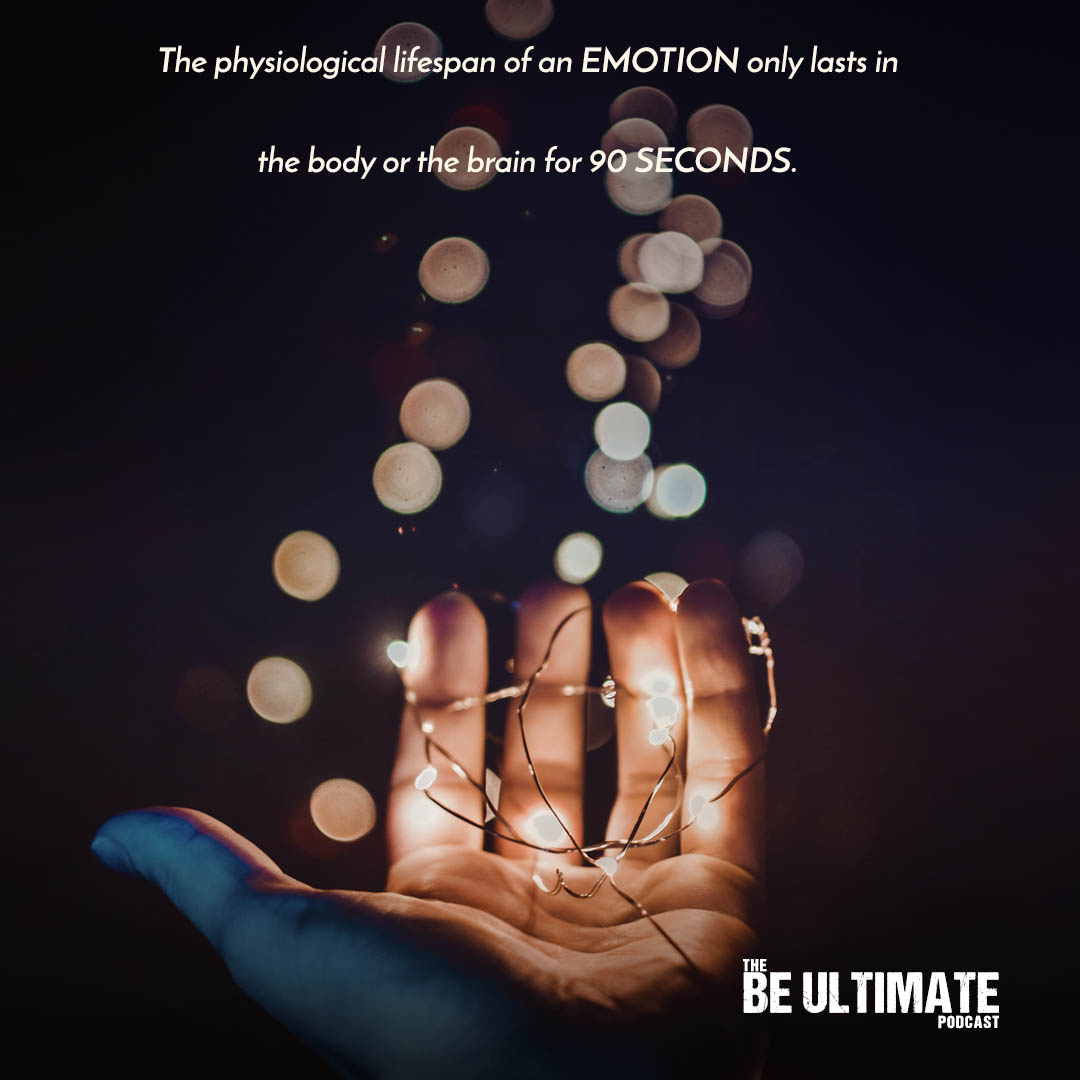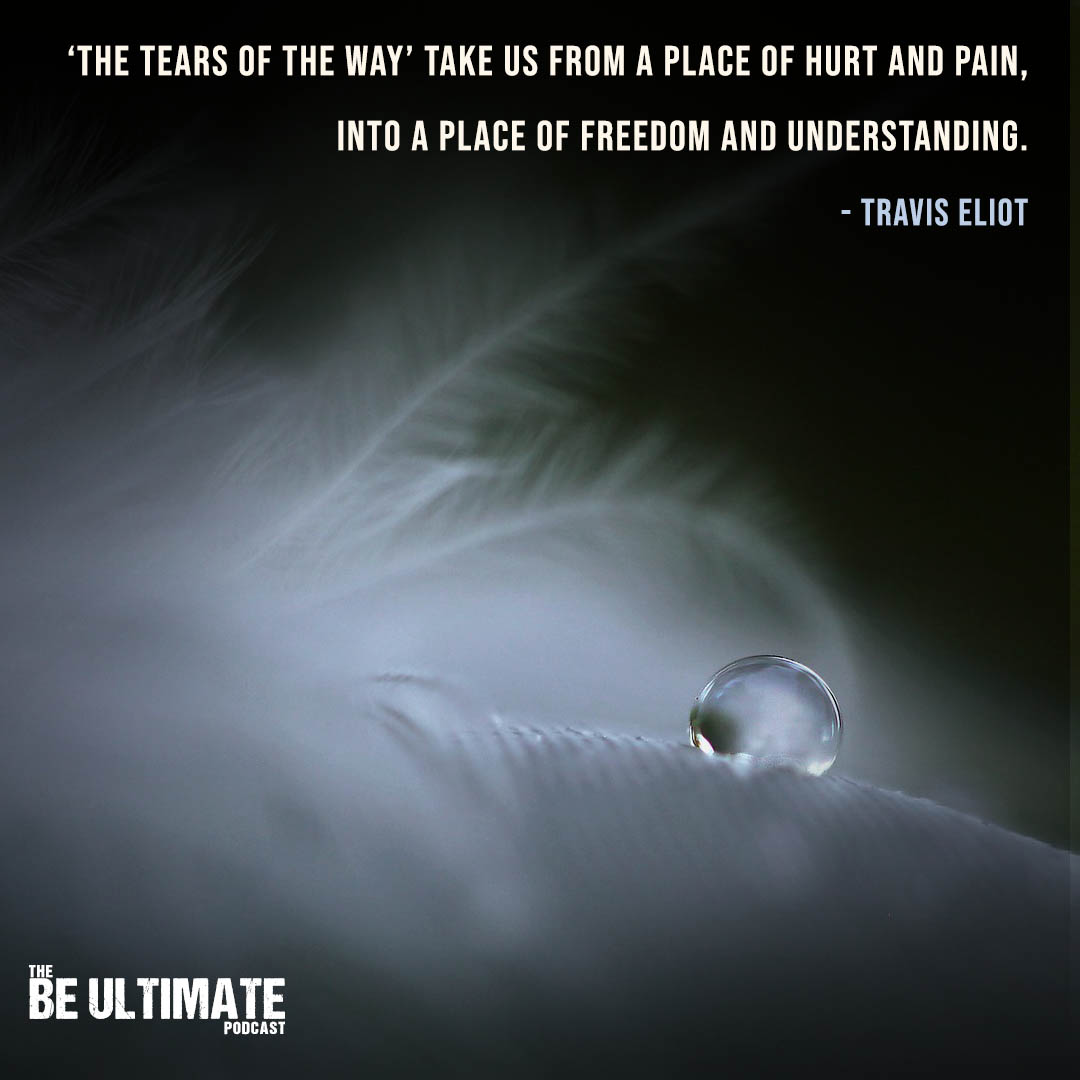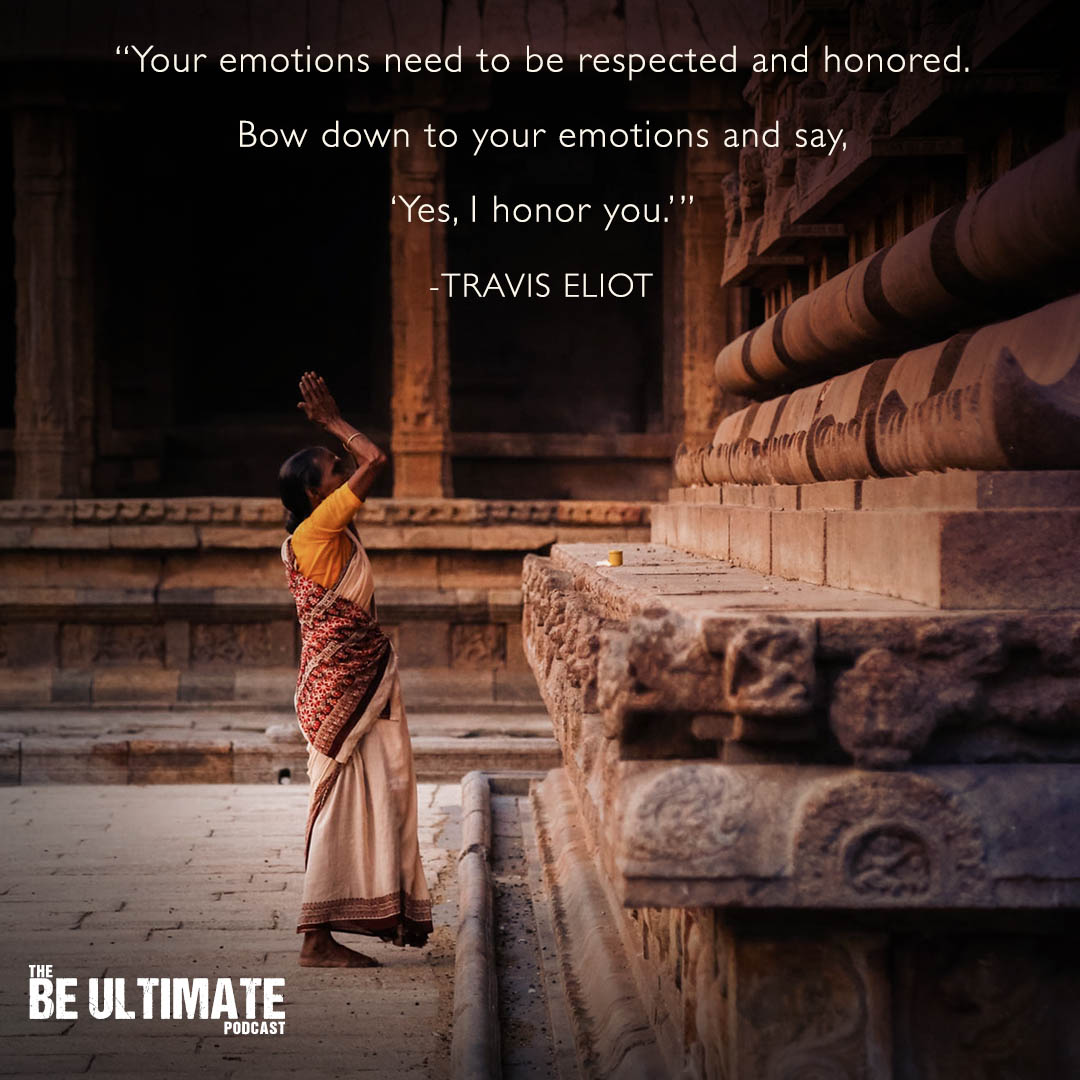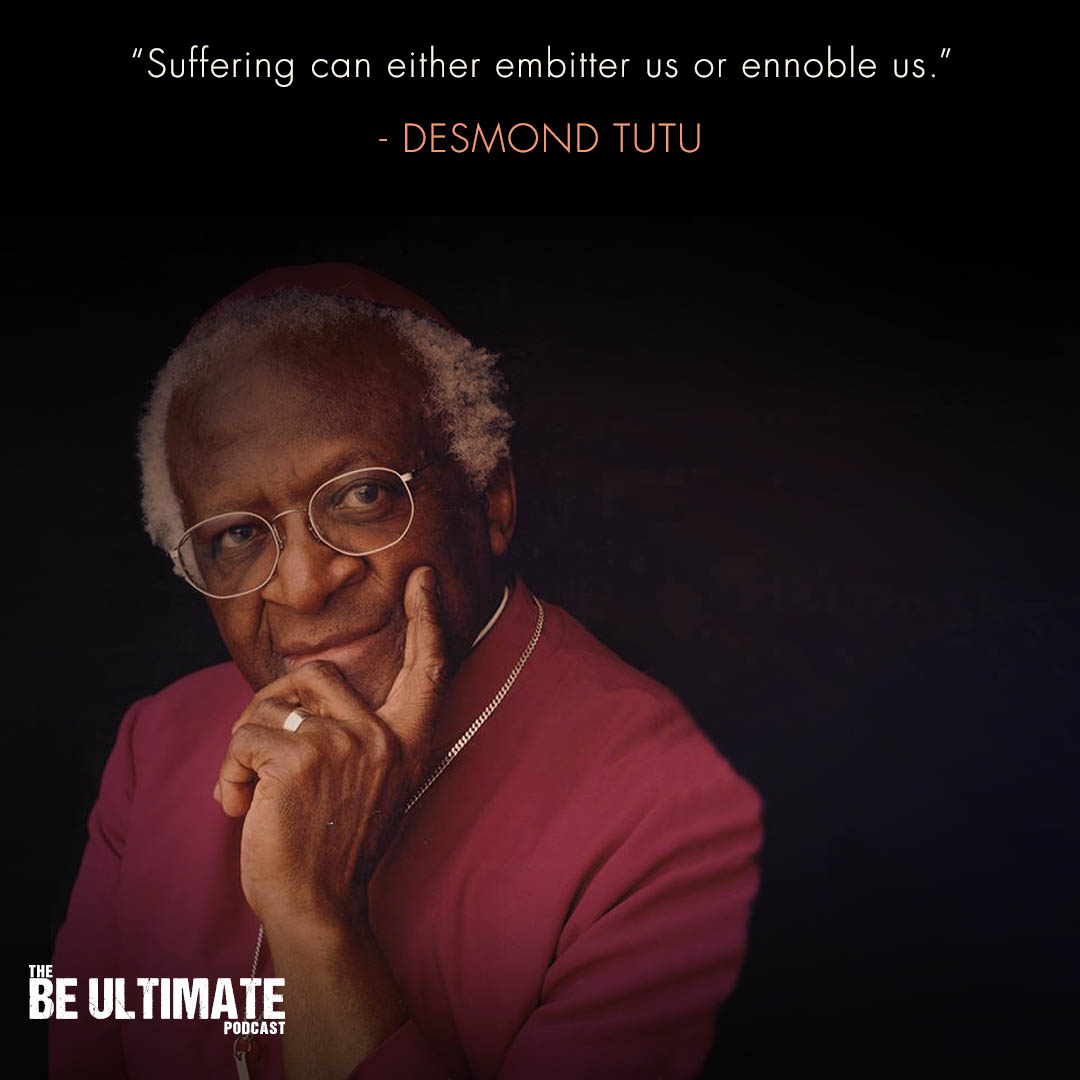Inner Reflections
February 25, 2020
EPISODE 54
Working SKILLFULLY with EMOTIONS
Learning to work skillfully with emotions is an important piece of living the ultimate life.
In the same way our thoughts come and go, our emotions are also in a constant state of flux. But, through wise understanding we learn to no longer overly identify with these emotions, and to recognize the dimension of ourselves that is vast and unlimited.
In this podcast, Travis will guide you through a talk with inspiring stories, quotes, research, and key tips for bringing wisdom to dealing with your emotions.
Hope you enjoy this inspiring episode!
Thank you for supporting the podcast by rating, reviewing, subscribing and sharing with your community!
Tell Your Friends & Share Online!
Subscribe & Review: iTunes | Spotify | Stitcher | Youtube








[The following is the full transcript of this episode of “The BE ULTIMATE Podcast.” Please note that this is direct from Travis speaking unscripted and unedited.]
Welcome to Episode 54 of BE ULTIMATE Podcast, “Working SKILLFULLY with EMOTIONS.”
We’re going to be talking about something I think we can all relate to, and that is working skillfully with your emotions. Part of being a human being is, is that we have emotions. These emotions can range from rage and anger and despair and grief and sadness, to the other end of the spectrum, which is joy and gratitude and compassion and love and really everywhere in between.
Being human and having all these different emotions, it’s very important that we know how to work with these emotions because when we don’t, our problem is is that the emotions begin to rule us instead of us ruling them. In many ways, the emotions are similar to working with your thoughts, which we’ve covered on some other episodes of the podcast.
Your thoughts come and go in the same way that your emotions come and go and really all of this is in a state of flux — sensations, sound, experience and even your breath. Working with emotions is one of the key pillars of mindfulness.
“Boredom, anger, sadness and fear are not yours, not personal. They are conditions of the mind. They come and go. Nothing that comes and goes is you.”
-Eckhart Tolle
I love this quote and I love the teachings of Eckhart Tolle because he really distills wisdom into real clear messages.
Who you truly are doesn’t come and go. Who you are on a deeper level is awareness and consciousness. Consciousness doesn’t have a birth and death, but your emotions do.
Part of this process of moving deeper down the spiritual path is really tapping back in to this dimension of ourselves that is timeless and permanent, so that then we can have a greater recognition of all the things that are impermanent and not get so wrapped up within them — to not get caught within the web and the drama or the roller coaster ride that we can get taken on with our emotions.
One day we are so excited, we’re so happy, things are going so well and we’re telling everybody that we know in our life that, “Oh my God, I’m so happy! I’m so happy!” And then the next day it’s the complete opposite. It’s almost like we’re bipolar, we feel depressed and we feel miserable and we feel unmotivated and we’re like, “God, what is wrong with me?”
Well part of what’s wrong with us in those circumstances is we’re overly identifying with this part of ourselves that naturally is going to go up and down.
Just like you, I have good days and I have challenging days. I have good moments and I have bad moments. Just like you, I too experience all the full ranges of emotions. But the work that I’ve learned to do over these last many years is to not get so wrapped up within the emotions and to also know that things are going to change. Your emotions are going to change.
But I can be the witness, I can be the one who knows, the one who sees clearly from a place of perspective, the flux and the natural flow of the emotions just like your thoughts. So when you recognize that timeless part of yourself, the part of yourself that is consciousness, you’re no longer going to so easily get triggered — triggered by other people, stressful situations and by your own emotions.
This is fascinating.
Neuroscientist Jill Taylor says, the Physiological lifespan of an emotion only lasts in the body or the brain for 90 seconds.
Think about some of the days, some of the emotions that you’ve had. Think about the big negative emotions like anger and rage and how long did those emotions last for you. I bet they lasted hours and maybe even all day. For some people, days turn into weeks, weeks turn into months, months turn into years, years turn into decades.
You see this within people, right? You see people that carry this weight of anger and grief and frustration or whatever it is. And it started off just as a little 90-second blip on the radar of their lifespan, and it eventually got stronger and stronger until it became wired into their personality. And you can bet that that personality is affecting that person’s reality.
If you’re walking around with all these emotions that you haven’t processed and digested, then that’s going to affect the way you think. It’s going to affect your belief system. It’s going to affect people that you attract in your life.
If you’re a negative person, positive people aren’t going to want to have anything to do with you. Of course some will be there to help you. But it’s not like they’re going to want to be spending a lot of time with you. It’s not like you’re going to be attracting a bunch of positive things in your life because you are like a magnet that’s attracting more negativity into your life.
So if an emotion only last 90 seconds, and that 90 seconds is expanding into minutes, hours and longer, then we have to accept responsibility that anything beyond 90 seconds is of our own doing.
Taking responsibility is very important because you’re saying, “Okay, I now have the decision to decide whether I’m going to keep feeding the drama and the negative story. Or am I going to move on. Am I going to deal with this emotion skillfully with wisdom and spin it into maybe a deeper understanding or maybe a learning experience to spin it into something positive.”
2,400 years ago the Buddha called this the “Second Arrow.”
He described it like this. He said it’s as if you get struck by one arrow and the initial arrow creates a wound. But our reaction to the first arrow when we continue to perpetuate the drama of it, it’s as if we’re creating a second arrow, a third arrow, etc., for our own selves.
One of the Buddha’s profound teachings was, if you want to transcend unnecessary suffering, then you have to stop the second and third arrow of suffering.
We’re all going to get struck by a first arrow, we’re all going to be placed in experiences in our life that are difficult and challenging. But everything beyond that, you have the power to stop it right there after the first arrow.
So we’re going to talk a little bit more about, “Well how do you do that? That sounds good, Travis. Of course I don’t want unnecessary suffering in my life. How do I do that?”
One of the ways you deal with your emotions skillfully, is to honor what you’re feeling.
If you’re feeling sadness, to not turn your back on the sadness. If you’re feeling rage, to not deny the rage, to not pretend like it’s not there. If you’re moving through major loss in your life, you’ve lost a loved one and you’re feeling grief, to not pretend like the grief isn’t there, to really honor what you’re feeling because whatever’s there is there for a good reason.
“The only way out is through.”
Robert Frost
When we grieve, when we allow ourselves to express sadness, when we allow ourselves to cry, to emote, these are called “The tears of the way.”
‘The Tears of the Way’ take us from a place of hurt and pain, into a place of freedom and understanding.
Very often when we get our hearts broken, this allows us to open up to a deeper part of ourselves that isn’t coming and going. That is permanent. It’s that consciousness, that dimension of unconditional love.
Now, of course, in our culture, we stuff our emotions inside of us. Especially if you’re a guy, especially if you’re a dude. From early on in your childhood, you’re taught to be strong. You’re taught to not emote yourself. This can really backfire because of the mind body connection.
The body keeps the score. We store the trauma within our body and if we don’t deal with it in a timely way, it backfires in the form of disease or post-traumatic stress syndrome. It just gets worse the longer we don’t deal with it. If you don’t deal with your inner demons, they hide out inside of the dungeon and they lift weights. They get stronger and eventually they become Herculean in nature. So you want to tackle the monster, you want to deal with the monster, you want to deal with the negativity when it’s still small.
So you allow yourself a grace period where you feel what you’re feeling. And then at some point you say, “All right. It’s time to move on. This has happened. And if I’m fighting this experience and I’m resisting this experience, again, I’m creating that second arrow and that third error,” etc.
Your emotions need to be respected and honored. Bow down to your emotions and say, “Yes, I honor you.”
Because those emotions are just crying out for your attention and often to teach you something. The moment you honor them, then you gain clarity, insight and wisdom.
There is a story about a platoon in the Iraqi war. This platoon was moving through a small town. As they walked through town with their guns and full combat gear, people started angrily running out into the streets. They were upset. They were enraged because their places of worship had been bombed. Their loved ones had been killed. As more and more continued to flood the streets, many of the soldiers started to switch into fight or flight mode and they started to grasp their guns, getting them ready to fire. The scene was quickly escalating. The intensity was rising, the blood was boiling. Right before it erupted into an inevitable bloodbath, the platoon leader did something profound. He dropped his knee to the earth. He raised his gun up above his head. He disengaged it and he slowly placed the gun to the earth — he commanded his soldiers to do the same. Although some were reluctant, they all did as they were commanded. And before you knew it, the situation was diffused, and many lives were saved.
When the platoon leader was later interviewed about the event, the reporter asked, “What inspired you to act in a way that goes against everything you’ve been trained to do?” He said, “I don’t know. Something inside of me, a deeper wisdom called out that the biggest weapon that could be used in a situation like this was the weapon of humility. The weapon of listening and recognizing the anger and the hurt and the frustration that was being expressed to us.”
In the same way the platoon leader dropped his knee and surrendered his weapons, we too have the capacity to drop a knee and to humbly honor our emotions and what they might be expressing. Of course, this takes real courage, it takes real strength. Any knucklehead could’ve grab their gun and just started firing. Anybody could slip into the reptilian part of the brain going into fight or flight and become a reactive mess. But to have the strength to pause, to see clearly and to act and behave in a way that is for the greatest good of all. This becomes a gift not just to yourself but to all the people around you.
I want to leave you with three tips to bring a greater wisdom and skillfulness to your emotions.
3 Tips to Work with the Emotions
Number one, ask yourself, what am I unwilling to feel?
What am I unwilling to feel in this moment? And I bet if you get quiet and you ask yourself this question, a deeper part of you will answer that question. There is a part of you that wants to be heard, and the moment you open up the door, it will have an opportunity to express itself. So you ask yourself, what am I unwilling to feel? Whatever it is you’ve been running away from or denying or turning your back on, it will call out to you. By honoring and deeply listening, it will take you right to the source of the most profound transformation.
Number two, ask yourself, what’s behind this emotion?
See a lot of us, we experience anger and anger is like a guard dog that’s protecting something it doesn’t want exposed. When you ask yourself, what’s behind this anger or why am I so angry right now? And you start to move through that anger, you start to peel away the outer levels of anger and then you start to see something like fear — there’s a part of you scared of getting hurt. There is a part of you that feels tender and vulnerable. And maybe behind that there could be sadness or grief. These emotions aren’t one dimensional, they’re very often connected to different colors of emotion. If you look past the surface of the first emotion, you’ll start to get to the source of what’s really happening.
The last third tip is, no emotion, whether it’s good or bad, is everlasting.
No emotion is final, no emotion is the end of the story. And this is so important to remember because when you’re moving through a difficult emotion, what do you feel? You feel like it’s going to last forever, you feel like it is relentless, that it’s never ever going to give up.
There is a story about a Sufi King who had all the gold he wanted. He had all the materialistic financial abundance anybody could ever have, and then some. But despite all of this wealth, emotionally he was on an emotional roller coaster. He was manic, he was often going into these downward spirals of anger and despair and emptiness and lack. As you can imagine, very frustrated by this.
He heard about this wise man that lived in the forest, and summoned him to come see him. He begged of the wise man, “I want you to teach me how to be joyful, how to be in a permanent state of joy and happiness and peace. If you can do this, I will give you as much gold as you want.” The wise man said, “I don’t need any gold from you. Give me a couple of weeks and I’ll come back and I’ll share with you a teaching so that you too, like me, can experience a permanent state of joy. The type of joy that is unstoppable. The two weeks passed, the wise man came back carrying a small little box. He handed the box to the Sufi King and he said, “Before you open up the box, this is the teaching. I want you to remember that any emotion that you ever experience in your life, whether it’s good, whether it’s bad, that it too shall always pass. Now open up the box.”
The Sufi King slowly opened up the box, inside was a golden ring. He picked up the golden ring and carved into it was the message, “This too shall pass.” The king placed the ring on his finger and for the rest of his life, through all the changing of emotions, thoughts, experiences and relationships, he would always touch his finger, and silently repeat the phrase, “This too shall pass.” The Sufi King did live in unending joy.
All right. Let’s finish now with the ultimate prayer.
“May we bring strength where there is weakness.
May we bring courage where there is fear.
May we bring compassion where there is suffering.
And may we bring light where there is darkness.
May we be ultimate!”



